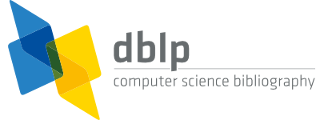


default search action
18. KI 1994: Saarbrücken
- Bernhard Nebel, Leonie S. Dreschler-Fischer:

KI-94: Advances in Artificial Intelligence, 18th Annual German Conference on Artificial Intelligence, Saarbrücken, Germany, September 18-23, 1994, Proceedings. Lecture Notes in Computer Science 861, Springer 1994, ISBN 3-540-58467-6
Invited Paper
- Hans-Hellmut Nagel:

AI Approaches Towards Sensor-Based Driver Support in Road Vehicles. 1-15
Selected Papers
- Sven-Erik Bornscheuer, Michael Thielscher

 :
:
Representing Concurrent Actions and Solving Conflicts. 16-27 - Klaus Goos:

Preselection Strategies for Case Based Classification. 28-38 - Eva Stopp, Klaus-Peter Gapp, Gerd Herzog, Thomas Laengle, Tim C. Lüth

 :
:
Utilizing Spatial Relations for Natural Language Access to an Autonomous Mobile Agent. 39-50 - Franz Baader, Martin Buchheit, Bernhard Hollunder:

Cardinality Restrictions on Concepts. 51-62
Neural Network Applications
- Marc Pomplun, Boris M. Velichkovsky, Helge J. Ritter:

An Artificial Neural Network for High Precision Eye Movement Tracking. 63-69
Logic Programming
- Vladimir Kuznetsov:

A Kripke-Kleene Logic over General Logic Programs. 70-81 - Jürgen Dix, Martin Müller:

The Stable Semantics and its Variants: A Comparison of Recent Approaches. 82-93
Natural Language
- Ingo Glöckner, Andrea Grieszl, Martin Eric Müller, Marc Ronthaler:

TabVer: A Case Study in Table Verbalization. 94-105 - Anthony Jameson, Bernhard Kipper, Alassane Ndiaye, Ralph Schäfer, Thomas Weis, Detlev Zimmermann:

Cooperating to Be Noncooperative: The Dialog System PRACMA. 106-117
Machine Learning
- Bernhard Pfahringer:

Robust Constructive Induction. 118-129
Knowledge Representation
- Thomas Fuhr, Franz Kummert, Gerhard Sagerer:

Enriching a Semantic Network Language by Integrating Qualitative Reasoning Techniques. 130-141 - Volker Haarslev, Ralf Möller, Carsten Schröder:

Combining Spatial and Terminological Reasoning. 142-153 - Jörg Walter Schaaf:

Detecting Gestalts in CAD-Plans to be Used as Indices for Case-Retrieval in Architecture. 154-165 - Erich Schikuta:

The NeuDB-System: Towards the Integration of Neural Networks and Database Systems. 166-177 - Joachim Quantz, Sven Suska:

Weighted Defaults in Description Logics: Formal Properties and Proof Theory. 178-189 - Andreas Becker, Gerhard Lakemeyer:

Epistemic Queries in Classic. 190-201 - Bernd van Linder, Wiebe van der Hoek

 , John-Jules Ch. Meyer:
, John-Jules Ch. Meyer:
Communicating Rational Agents. 202-213 - Josef Meyer-Fujara, Barbara Heller, Sonja Schlegelmilch, Ipke Wachsmuth:

Knowledge-Level Modularization of a Complex Knowledge Base. 214-225 - Witold Lukaszewicz, Ewa Madalinska-Bugaj:

Program Verification Techniques as a Tool for Reasoning about Action and Change. 226-236 - Luis Fariñas del Cerro, Andreas Herzig:

A Conditional Logic for Updating in the Possible Models Approach. 237-247
Non-monotonic Reasoning
- Gerhard Schurz:

Probabilistic Justification of Default Reasoning. 248-259 - Gerson Zaverucha:

A Prioritized Contextual Default Logic: Curing Anomalous Extensions with a Simple Abnormality Default Theory. 260-271 - James P. Delgrande, Torsten Schaub:

Incorporating Specificity into Circumscriptive Theories. 272-283 - Hans Rott

 :
:
Coherent Choice and Epistemic Entrechment (Preliminary Report). 284-295 - Zuoquan Lin, Wei Li:

A Note on Tableaux of Logic of Paradox. 296-307 - Nicholas Asher, Jérôme Lang:

When Nonmonotonicity Comes from Distances. 308-318
Reasoning
- Gérard Becher, Uwe Petermann:

Rigid Unification by Completion and Rigid Paramodulation. 319-330 - Michael Kohlhase:

Unification in a Sorted Lambda-Calculus with Term Declarations and Function Sorts. 331-342 - Jörg Denzinger, Matthias Fuchs:

Goal Oriented Equational Theorem Proving Using Team Work. 343-354 - Ian P. Gent, Toby Walsh:

The Hardest Random SAT Problems. 355-366 - Peter Madden:

Formal Methods for Automated Program Improvement. 367-378 - Xiaorong Huang, Manfred Kerber, Michael Kohlhase, Jörn Richts:

Adapting Methods to Novel Tasks in Proof Planning. 379-390
Posters
- Jan W. Amtrup:

Using Charts for Transfer in MT. 391 - Matthias Baaz, Karin Hörwein:

A New Frame For Common-Sense Reasoning - Towards Local Inconsistencies. 392 - Marie-Odile Cordier, Pierre Siegel:

Prioritized Transitions for Updates. 393 - Jürgen Eckerle:

An Optimal Bidirectional Search Algorithm. 394 - Bogdan Filipic, Iztok Zun, Matjaz Perpar:

Learning to Discriminate Phases in Gas-Liquid Flow. 395 - Jürgen Giesl, Ingrid Neumann:

Strategies for Semantical Contractions. 396 - J. S. J. H. Penders:

Conflicts in the Spatial Interaction of Autonomous Agents. 397 - Stefan Rapp, Michael Jessen, Grzegorz Dogil:

Using Rough Sets Theory to Predict German Word Stress. 398 - Kristina Schädler:

Graphtheoretical Algorithms and Knowledge-Based Design. 399 - Eugenia Ternovskaia:

Interval Situation Calculus. 400

manage site settings
To protect your privacy, all features that rely on external API calls from your browser are turned off by default. You need to opt-in for them to become active. All settings here will be stored as cookies with your web browser. For more information see our F.A.Q.


 Google
Google Google Scholar
Google Scholar Semantic Scholar
Semantic Scholar Internet Archive Scholar
Internet Archive Scholar CiteSeerX
CiteSeerX ORCID
ORCID














